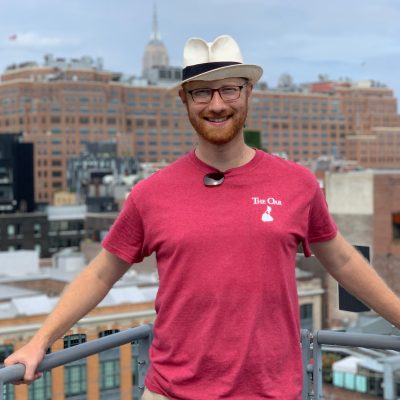Student Spotlight: Ben Fried

November 22, 2021
Ben Fried is a doctoral candidate in English language and literature from Ottawa, Canada. After earning his undergraduate degree at McGill University, he chose to pursue further study at Cornell due to the reputation of its field of English language and literature.
What is your area of research and why is it important?
I study the networks linking writers, readers, and publishing institutions across the Anglophone world. The institutions I analyze include the BBC, The New Yorker, and Penguin Books, while the writers span five continents and number: V. S. Naipaul, Wole Soyinka, Mavis Gallant, Maeve Brennan, Vikram Seth, and Helen Garner. The particular readers I look at, meanwhile, are editors, whose work with both authors and institutions illuminates the process by which writing enters the world and reaches its public. Using this editorial lens, I investigate the nexus of commercial and aesthetic currents driving the postwar development of literatures in English.
What are the larger implications of this research?
The implications are at once literary and disciplinary. My research reshapes the history of 20th-century writing in English by bringing both understudied literatures and understudied literary figures, like the editor, to center stage. By broadening that history and by developing more accurate theories of how the creative process works in the global economy, I am also contributing to a more diverse and inclusive future for English studies—one that recognizes the multiplicity of both Englishes and literatures. This movement towards greater pluralism is encapsulated by the recent decision of my department here at Cornell to rename itself the “Department of Literatures in English.”
What will the Cornell University Library’s Arts & Sciences Digitization Grant allow you to do?
The Digitization Grant will allow me to give new life to one of the most important existing archives for the study of Anglophone Indian poetry: the Bombay Poets Archive. Held at Cornell, centered on the Clearing House poetry co-operative, and illuminating the broader Bombay literary scene of the 1970s, this archive combines the personal papers of several prominent Indian authors: Arvind Krishna Mehrotra, Adil Jussawalla, Arun Kolatkar, and Dilip Chitre, among others. It is treasure trove of Indian literary life.
Why is this project important, both for you as a scholar and for the broader Cornell community?
Digitization will make the material accessible to researchers prevented by distance, expense, and the pandemic from traveling to Ithaca—while also developing a teaching resource for all Cornell academics interested in exploring this golden period of Indian poetry. The digital archive will reach those who already know that they’re interested in these writers and their works. What’s more, it may catch the attention of those scholars, students, and regular readers who don’t yet know how interesting the poetry can be.
What are your hobbies or interests outside of your research or scholarship?
I am, first and foremost, a reader, although my metabolism for books has slowed down since my teenage years. Before the pandemic, I was a hungry traveler. During the pandemic, I honed my skills as an amateur chef, an amateur tennis player, and an amateur pianist. I’m also finally learning how to drive.
Why did you choose Cornell to pursue your degree?
I chose Cornell for its Department of Literatures in English—one of the finest in the country and the world—and for its literary pedigree in general. Toni Morrison, Vladimir Nabokov, Thomas Pynchon, and plenty of others have all lain down in the Arts Quad with a book, just like you and me. Cornell is also where my grandfather came to study architecture as a teenager during the Depression, a connection across time that comes alive for me whenever I find myself in sight of Sibley Hall or strolling down the Slope.
